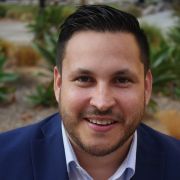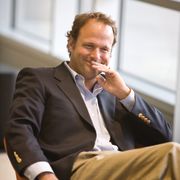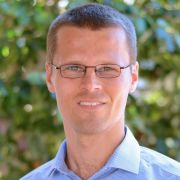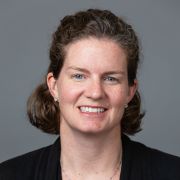Fellows
Climate Fellows
Climate Fellows

Omar Asensio
Using AI to ensure an equitable distribution of EV infrastructure
As the United States prioritizes plans for EV infrastructure that facilitates highway travel with fewer emissions than traditional vehicles, Asensio will accelerate his research into whether current policies and incentives might leave some communities behind. With the largest database of electric vehicle charging infrastructure performance worldwide—featuring information such as location, pricing, charging speeds, and consumer reviews—he uses big data and machine learning to reveal strategies for sustainable growth.
Using AI to ensure an equitable distribution of EV infrastructure
As the United States prioritizes plans for EV infrastructure that facilitates highway travel with fewer emissions than traditional vehicles, Asensio will accelerate his research into whether current policies and incentives might leave some communities behind. With the largest database of electric vehicle charging infrastructure performance worldwide—featuring information such as location, pricing, charging speeds, and consumer reviews—he uses big data and machine learning to reveal strategies for sustainable growth.

Gunther Glenk
As part of the growing movement to slow climate change, companies worldwide are increasingly taking responsibility for the greenhouse gas emissions associated with their economic activity. Glenk will examine questions related to corporate transitions toward zero net emissions. Specific topics include the economics and management of corporate carbon emissions, decarbonization and sustainable energy technologies, and incentives for climate action.
As part of the growing movement to slow climate change, companies worldwide are increasingly taking responsibility for the greenhouse gas emissions associated with their economic activity. Glenk will examine questions related to corporate transitions toward zero net emissions. Specific topics include the economics and management of corporate carbon emissions, decarbonization and sustainable energy technologies, and incentives for climate action.

Conor Hickey
Examining the financial and organisational impacts of delayed climate action on corporations
With significant experience researching corporate net-zero strategies, Hickey plans to investigate the impact of delayed climate action on corporations. Delayed climate action can take various forms, such as an overreliance on speculative technologies that do not yet exist at scale, or strategies that prioritise short-term solutions with limited long-term climate benefits. These approaches can hinder progress towards achieving net zero emissions and may exacerbate the negative impacts of climate change. He’ll focus specifically on the sectors that currently have limited mitigation potential, such as aviation. Hickey believes by demonstrating the financial impact of delayed action, corporations may be more supportive of effective regulation.
Examining the financial and organisational impacts of delayed climate action on corporations
With significant experience researching corporate net-zero strategies, Hickey plans to investigate the impact of delayed climate action on corporations. Delayed climate action can take various forms, such as an overreliance on speculative technologies that do not yet exist at scale, or strategies that prioritise short-term solutions with limited long-term climate benefits. These approaches can hinder progress towards achieving net zero emissions and may exacerbate the negative impacts of climate change. He’ll focus specifically on the sectors that currently have limited mitigation potential, such as aviation. Hickey believes by demonstrating the financial impact of delayed action, corporations may be more supportive of effective regulation.

Andrew Hoffman
A systems-level view of climate change
Having researched the intersection of business and the environment for nearly 30 years, Hoffman plans to look at climate change as a systems breakdown, rather than an environmental issue. Integrating physical, social, and political science into business decision making, Hoffman plans to conduct a systemic examination of how business and business schools can improve their approach to combating climate change, arguing for large-scale action.
A systems-level view of climate change
Having researched the intersection of business and the environment for nearly 30 years, Hoffman plans to look at climate change as a systems breakdown, rather than an environmental issue. Integrating physical, social, and political science into business decision making, Hoffman plans to conduct a systemic examination of how business and business schools can improve their approach to combating climate change, arguing for large-scale action.

Jonas Meckling
The political economy of decarbonization
With a focus on studying the politics of clean energy transitions and probing why some economies are moving faster than others, Meckling plans to examine the recent rise of green industrial policy currently shaping markets for low-carbon technologies. He will examine what effective green industrial policy might look like as well as pitfalls such as international conflict to help mobilize effective business investments to create and grow markets for low-carbon technologies.
The political economy of decarbonization
With a focus on studying the politics of clean energy transitions and probing why some economies are moving faster than others, Meckling plans to examine the recent rise of green industrial policy currently shaping markets for low-carbon technologies. He will examine what effective green industrial policy might look like as well as pitfalls such as international conflict to help mobilize effective business investments to create and grow markets for low-carbon technologies.

Robyn Meeks
The study of climate resilience in developing countries
With 20 years of experience researching water and energy technologies, Meeks plans to examine how the resilience of an electrification technology—specifically, mini grids—can be augmented in rural, remote communities in developing countries, which are disproportionately affected by climate change. Her project in Nepal brings together technology, government, and electric utilities to determine how rural, isolated communities—and their citizens and businesses—can increase the resiliency of their economies as extreme weather events become more common.
The study of climate resilience in developing countries
With 20 years of experience researching water and energy technologies, Meeks plans to examine how the resilience of an electrification technology—specifically, mini grids—can be augmented in rural, remote communities in developing countries, which are disproportionately affected by climate change. Her project in Nepal brings together technology, government, and electric utilities to determine how rural, isolated communities—and their citizens and businesses—can increase the resiliency of their economies as extreme weather events become more common.
